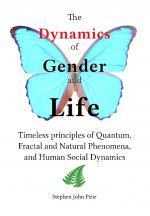[ © Stuart B. Hill 2003 ]
Personal
-
Does it support: empowerment, awareness, creative visioning, valuesclarification, acquisition of essential literacies and competencies, responsibility, wellbeing and health maintenance, vitality and spontaneity (building & maintaining personal capital – personal sustainability)?
-
Does it support: caring, loving, responsible, mutualistic, negentropic relationships with diverse others (valuing equity & social justice), other species, place and planet (home & ecosystem maintenance)?
-
Does it support: positive total life-cycle personal development and change?
Socio-Political
- Does it support: accessible, collaborative, responsible, creative, celebrational, life- promoting communityand politicalstructures and functions (building & maintaining social capital – cultural [including economic] sustainability)?
-
Does it support: the valuing of ‘functional’ high cultural diversity and mutualistic relationships?
-
Does it support: positive cultural development and co-evolutionary change?
Environmental
-
Does it support: effective ecosystems functioning (building & maintaining natural capital -- ecological sustainability)?
-
Does it support: ‘functional’high biodiversity, and prioritised use and conservation of resources.
-
Does it support: positive ecosystem development and co-evolutionary change?
General
- Does it support: proactive (vs. reactive), design/redesign (vs. efficiency & substitution) and small meaningful collaborative initiatives that together you can guarantee to carry through to completion (vs. heroic, Olympic-scale, exclusive, high risk ones) and their public celebration at each stage -- to facilitate their spread -- thereby making wellbeing and environmental caring ‘contagious’
- Does it focus on: key opportunities and windows for change (pre-existing change ‘moments’)?
- Does it explain: how it will effectively monitor and evaluate its progress (broad, long-term, as well as specific & short-term) by identifying and using integrator indicatorsand by being attentive to all feedback and outcomes(& redesigning future actions & initiatives accordingly)?
Professor Stuart B. Hill – s.hill@uws.edu.au -Foundation Chair of Social Ecology
School of Education (previously School of Social Ecology and Lifelong Learning),
University of Western Sydney (Kingswood Campus),
Locked Bag 1797 South Penrith Distribution Centre, NSW 1797, AUSTRALIA.
July, 2003
 "The Dynamics of Gender and Life" ebook is now available at
"The Dynamics of Gender and Life" ebook is now available at